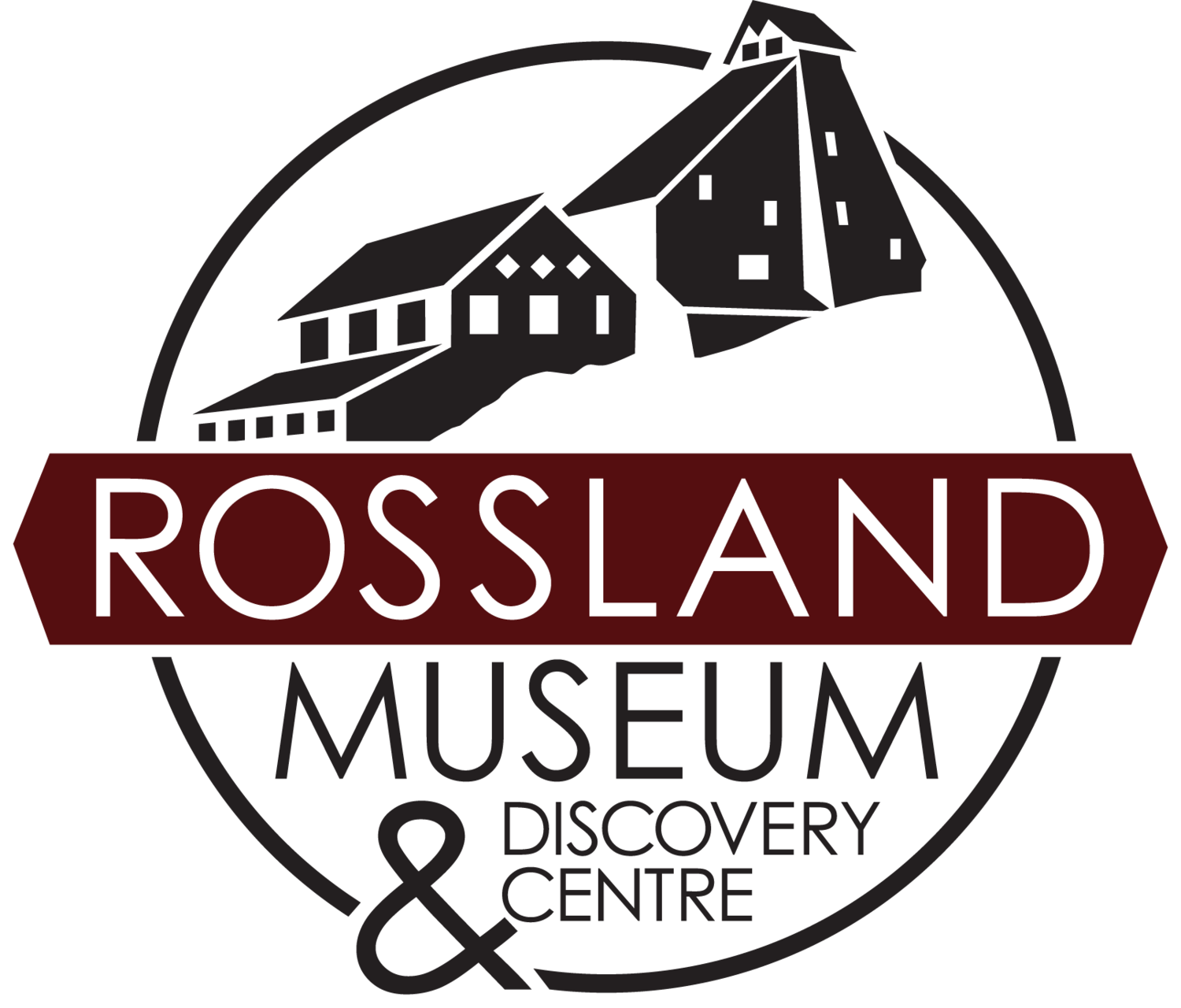Defying Domesticity - New Exhibit at Curiosity!
In honor of Golden City Days, our summer Collections Assistant, Madysson Weatherford, curated a new exhibit that explores women in early Rossland from the 1890s to 1940s. Featuring artifacts, photographs, and ads from the RMDC collection, Defying Domesticity: Women in Early Rossland provides a lens into four prominent areas of society where women played important roles in building the foundation of the town!
The discovery of gold in the 1890s brought thousands of people to what is now Rossland. While a rugged mining town was considered no place for a woman, women also flocked to the "Golden City" looking for opportunities and adventure. From business owners like Mrs. Allan to the undefeated Rossland's women's hockey team, women in early Rossland prospered, defied societal norms, and made lasting contributions to the success of Rossland.
HOME LIFE
The home life of early Rossland’s women proved challenging in the developing city. With no running water or electricity for the first few years, the amenities could include outdoor toilets, wood stoves, and hand-washed laundry. Roles of women were initially based on traditional societal norms - run the house, take care of the children. Many Rossland women fulfilled these expectations, but pursued their passions outside of the home and made a space for themselves within Rossland. Whether this was done by joining community groups, sports teams, or expressing themselves through political endeavors such as supporting the unions or campaigning for women's suffrage, the outcome was the same - pushing against traditional expectations. An example of a prominent Rossland resident who defined the odds of a domestic lifestyle was Jessie McQueen. Working as a teacher after arriving in 1896 she constructed a home and owned her own land! She became known around town for riding a bicycle, an unusual sight at the time, for transportation and exercise!
2306.0002: Rossland Picnic circa 1910
A2022.000.002.1804: Group of Girl Guides and their infamous cookies, date unknown. Rossland’s first Guide troop formed in 1934, with weekly meetings at the St. Andrew’s Church. Teaching leadership and other life skills, guiding became a weekly activity for young girls. The Guides' camp, Camp Rory, was built in 1938 and is still in operation today!
COMMUNITY ORGANIZATIONS
Throughout Rossland’s history, there have been numerous organizations, clubs, and community groups for women and girls, including the Pythian Sisters, Deborah Rebekah Lodge, and the Girl Guides. These organizations not only gave women a space to gather with friends outside of the home but actively contributed to Rossland. Groups like the Deborah Rebekahs, the Soroptimists, Western Federation of Miners Auxiliary, countless women's church organizations, and other service groups were known for their charity work and fundraising for the less fortunate. When the miners went on strike, it was the Women's Auxiliary that provided administrative support, food, and organized writing campaigns. Sports, particularly the women's hockey league, allowed women to participate in traditionally male activities. The Rossland ladies’ hockey team dominated the league, going undefeated for 17 years.
FASHION
Despite the modest lifestyle of women in early Rossland, fashion was a crucial aspect of a feminine identity and how women expressed themselves. Clothing moved in and out of style, but more importantly reflected the changing attitudes towards women. During Rossland’s early days, Victorian standards of modesty and femininity were firmly entrenched in the clothing styles. Despite the restrictions of their clothing, Rossland's women continued to push against societal norms and pursue their passions. The contributions of women during the first world war affected more than just more widespread acceptance of women in the workforce. Changes in fashion also spoke to the freedom that many women were experiencing and a shift in the thinking about modesty.
A2022.000.002.0100: The Sisters of St. Joseph and nurses at the Mater Misericordiae Hospital kitchen circa 1962
WORKING WOMEN
Rossland had several prominent female business owners, something that was very uncommon at the time. Businesses including the Rossland Opera House, Hotel Spokane, and Hotel Allan were run by women, the most notable being the Hotel Allan. Women like Mrs. Allan and Ema Rugh defied the social norms of their time and ventured into very traditionally male industries like business owning and mining. Due to the time period, it was no shock that many girls struggled to find work due to their gender. There was a report in the Rossland Miner that one girl went as far “as to don male attire and sought and secured employment as a man,” which was a crime at the time! Common jobs that women found in Rossland were as nurses, cooks, and teachers (as long as they weren’t married).
Defying Domesticity will be on display at Curiosity Clothing and Gifts from
September 3 to September 19th.
As always, a huge thank you goes out to Trinda at Curiosity Clothing & Gifts for being such an amazing supporter of our Outreach Exhibit Program! Without community partners like her, we wouldn’t be able to explore and showcase as much of Rossland’s diverse and interesting history as we do.














